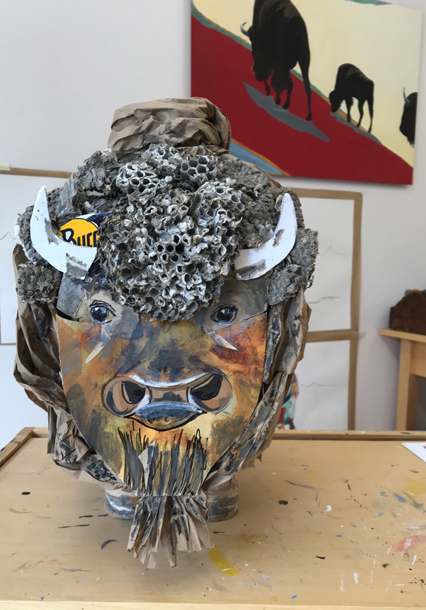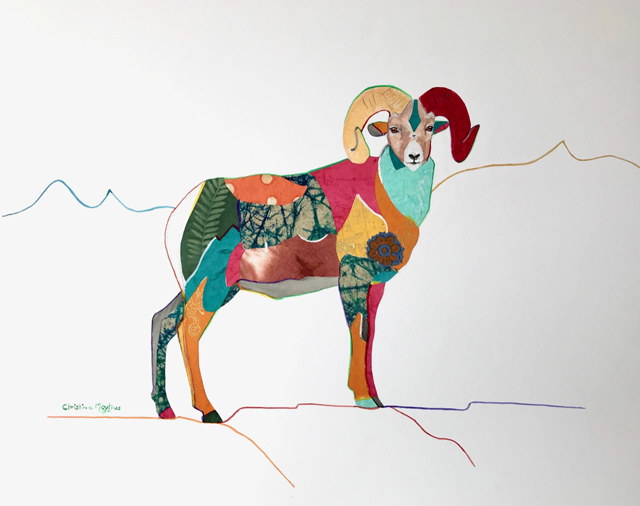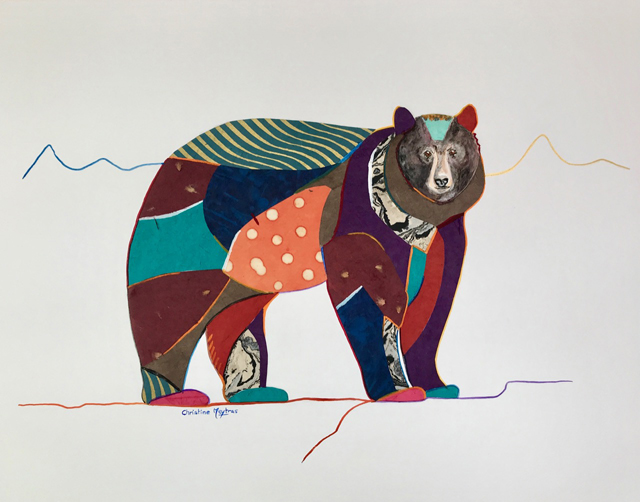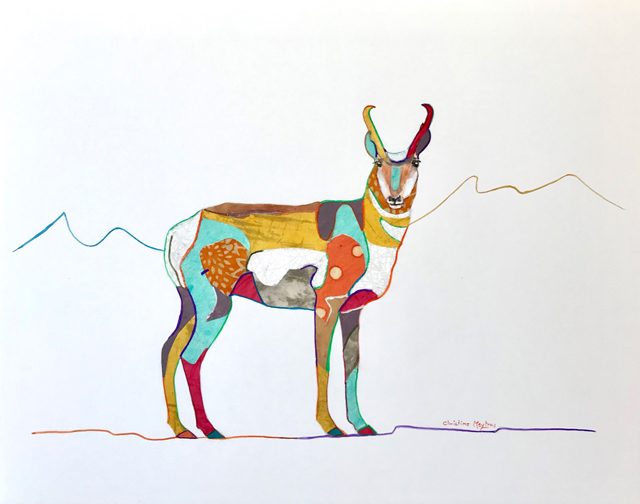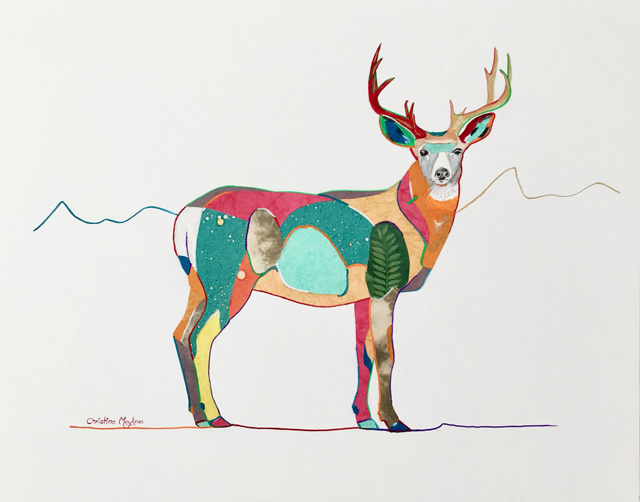
Mule Deer is the last portrait in a series of 12 animal portraits titled “The Portrait Gallery: 12 large Animals of the American West”. All the animals are presented the same way: in profile, facing right, their head turned toward the viewer. The background is also the same: outlines of mountains in the same colors. I used exotic papers to catch the viewer’s attention so that he or she can pause and think of the animals, their struggle and the fact that their numbers are dwindling. I thought of the photographer Edward Curtis who photographed the multiple American Indian tribes as their world and life styles were vanishing.

